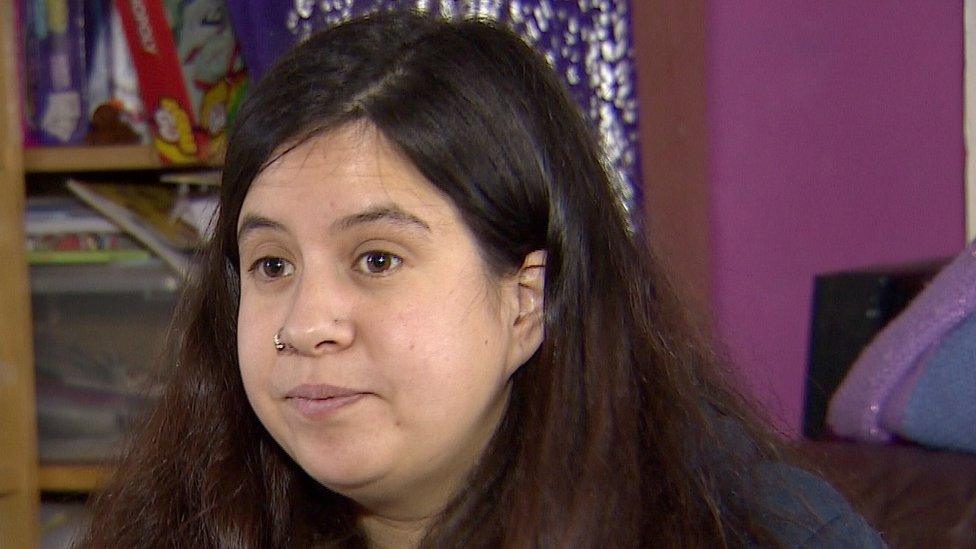Cost of living: 'Instead of the heating I'll put more layers on'
- Published
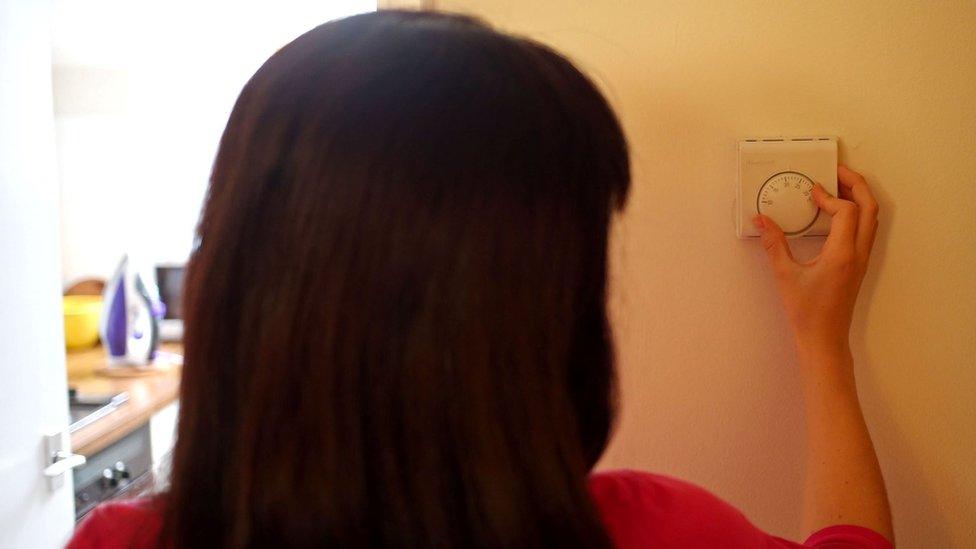
Some people say they have changed the way they use energy because of the rise in bills
The energy price cap - the maximum price suppliers in England, Wales and Scotland can charge households - is being raised.
It means the energy bill of a typical household will increase by 54%.
Prices have also risen at supermarkets and petrol pumps, although the government is cutting fuel duty on petrol and diesel by 5p per litre in an effort to help drivers cope with rising fuel costs.
BBC News went to the town of Wolverton, near Milton Keynes, to see how people are coping with the rising cost of living and whether the community can come up with solutions themselves.

'I feel for people on very low incomes'
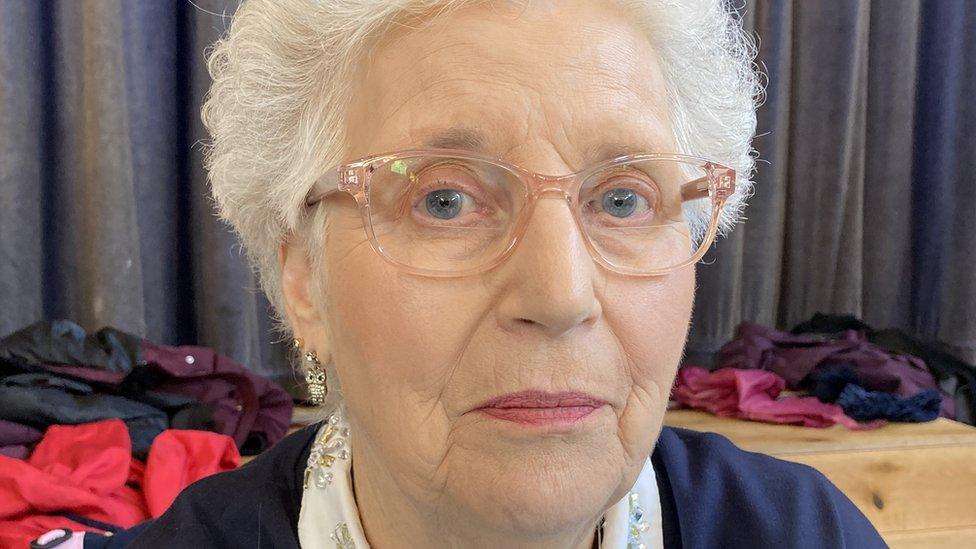
Shirley Johnson is worried how people will cope with price rises
Shirley Johnson says the cost of living is "just getting too much".
"The energy price has gone up 54%, pensions don't go up that much," she says.
Last year the government confirmed a one-year suspension of the "triple lock" formula for annual state pension increases.
Instead, the rise will be the consumer inflation rate or 2.5%.
The 77-year-old says: "I feel for not only pensioners, but for single parent families and people on very low incomes.
"How they are going to manage I really don't know."

'There'll be cuts here and there'

Having returned to work Amy Armstrong has notice the increased cost of petrol
Amy Armstrong says she and her family are "being a lot more conscious about our spending".
"Especially shopping, we are writing down how much we spend each week which we didn't do before," she says.
The 34-year-old has just returned to work "so I'm spending much more on fuel, [price increases] couldn't come at a worst time really".
She says: "It'll be interesting how we cope with money.
"I'm sure we'll be fine but there'll be cuts here and there."

'Everything is going up'
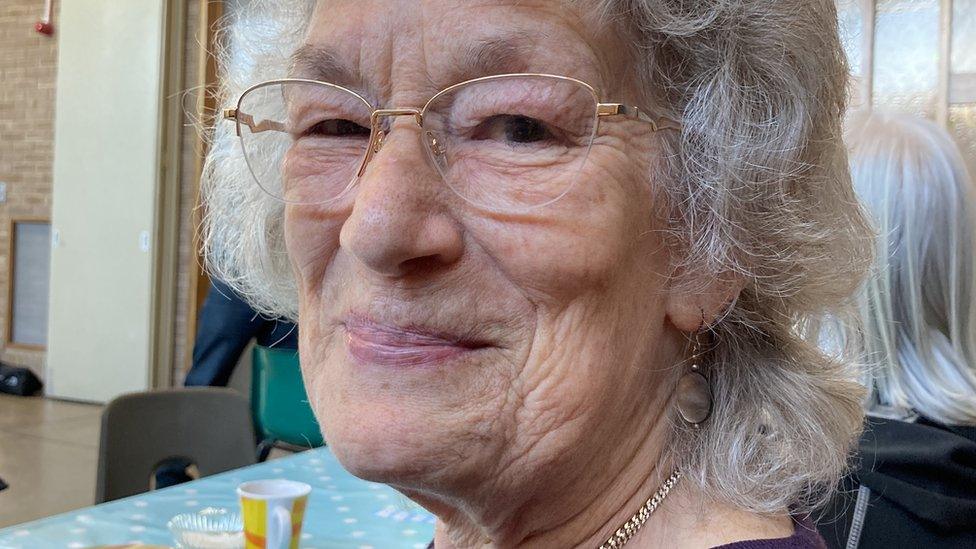
Elaine Hudson is worried her pension is not rising at the same rate the cost of living
Elaine Hudson says: "This morning you'd put the heating on, now I'll put more layers on instead.
"I try and just heat one room instead of the whole house."
She described the rise in the cost of living as "terrifying".
The 71-year-old says: "The pension hasn't gone up even a fraction.
"My grocery delivery was £40 now it's £50. Everything is going up in 10s and 20s.
"You have to be very aware [of spending] on a fixed income."

'Budget dwindles without buying extra'

Fiona Barnett says she is worried about the cost of living
Fiona Barnett says she was able to get a fixed rate from her energy supplier before recent price rises.
"We're OK at the moment, but not looking forward to it going up and not really knowing what it's going up to," she says.
The 36-year-old says the situation with the cost of living is "worrying".
"You have a set budget, particularly on maternity leave, and it dwindles without actually buying anything extra," she says.

'Cheaper, greener, energy'
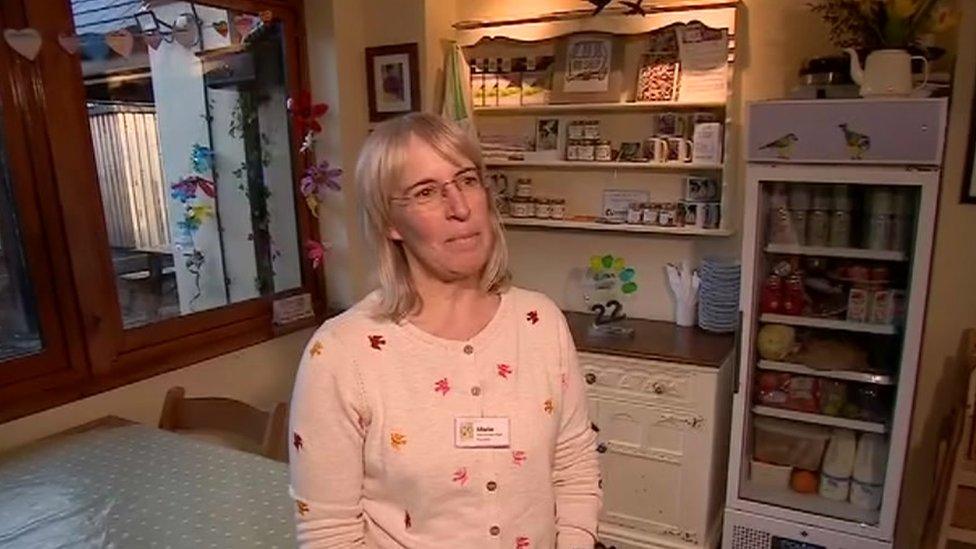
Community energy companies could provide people with cheaper bills Marie Osborne says
Marie Osborne is director of Wolverton Community Energy, a not-for-profit energy supplier.
"We own solar panels on community and commercial buildings in Milton Keynes and we supply the businesses and organisation below those solar panels," she says.
She says they are now "benefitting from cheaper, greener, energy than they can possibly get at the moment".
The company invest profits in fuel poverty projects and other community activities, she says.
It is now involved with Milton Keynes Council and the developers on the Agora redevelopment, external in central Wolverton.
She says all the homes and business "will be supplied by a renewable energy micro-grid [with] solar panels, air source heat pumps and a giant battery".
"The fuel bills for those people will be considerably lower," she says with an estimate of £200 a year.
"That's what can be achieved with a not-for-profit community energy organisation," she adds.

What help is the government providing?

The government says it is softening the blow of the price cap rise
The majority of families will get a total of £350 to help them adjust to higher prices, the government says.
It will mean a £200 discount on energy bills for households from October, which will be paid back over next five years at £40 per year starting in April 2023. Analysts suggest bills could rise again that month.
In England, households in council tax bands A to D - information you can find on your bill - will get a £150 discount from April.
The government is also cutting fuel duty on petrol and diesel by 5p per litre.

Find BBC News: East of England on Facebook, external, Instagram, external and Twitter, external. If you have a story suggestion email eastofenglandnews@bbc.co.uk, external
Related topics
- Published1 April 2022
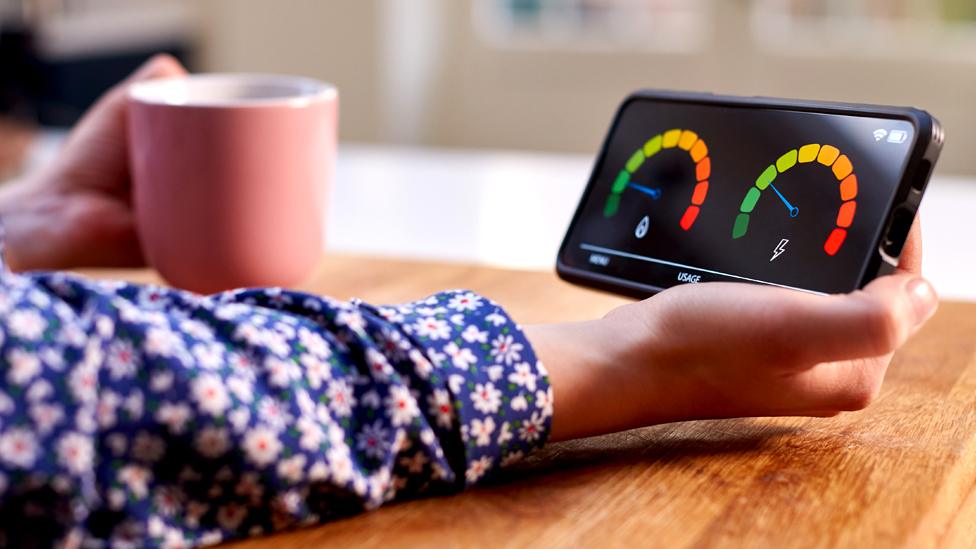
- Published1 April 2022

- Published4 February 2022
